This is how the Petro government moves to present a proposal to Chavismo and the opposition
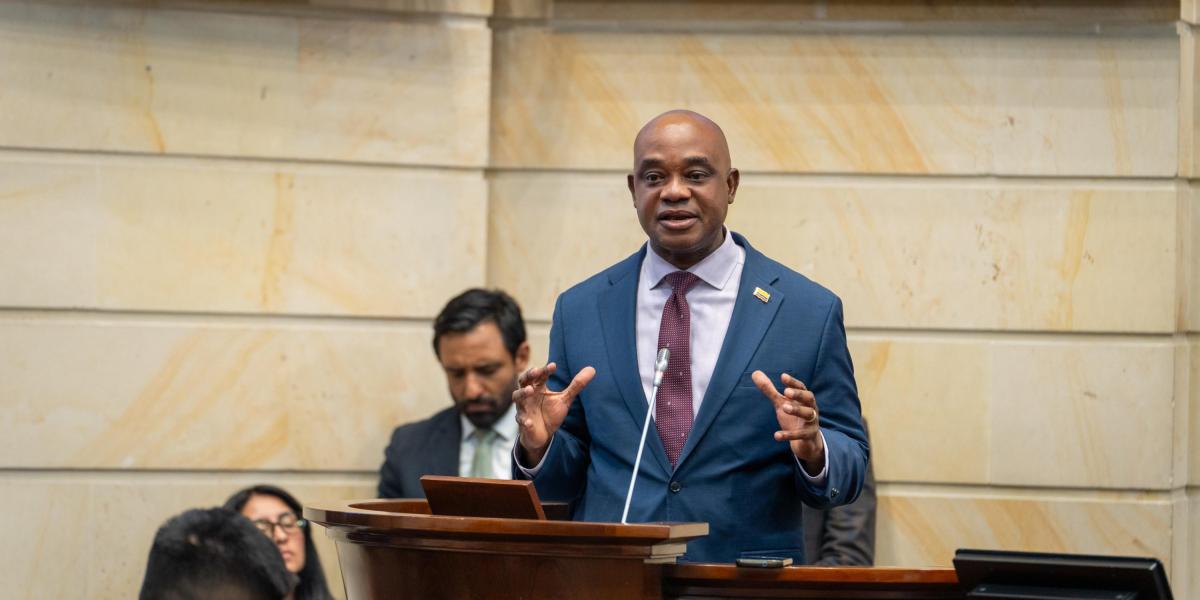
The idea remains the same: that the Chavismo and the opposition reach an internal political agreement to establish a cohabitation government. President Gustavo Petro was the first to give public light to this initiative on August 15; and although Nicolás Maduro did not approve it, Colombia has not reconsidered it, but is silently working to adjust it.
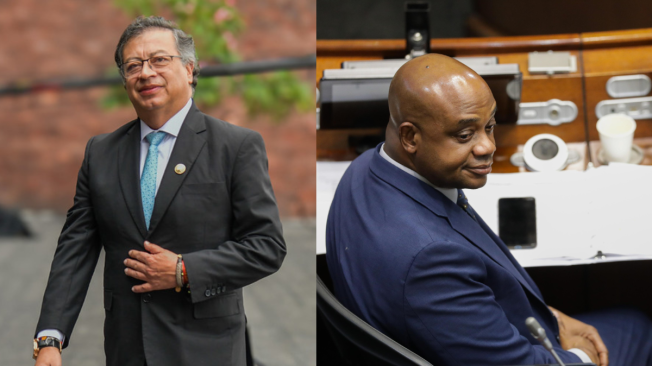
President Gustavo Petro and Chancellor Luis Gilberto Murillo. Photo: Presidency / César Melgarejo EL TIEMPO
Governance agreement
“The experience of the Colombian National Front is an experience that, used temporarily, can help achieve a definitive solution,” Petro said almost two months ago.
This governance agreement essentially consists of From now until 2031, the ruling party and the opposition share power with three years for each and in six years there will be transparent elections. All this under the umbrella of lifting of sanctions.
The plan now contemplates a major challenge: involve the United Nations Security Council so that the parties can sign a unilateral declaration of State and add the support of Cuba, China and Russia.
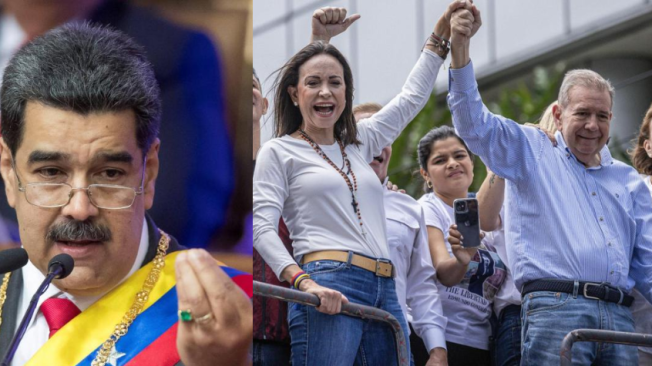
Nicolás Maduro and the opposition, led by María Corina Machado and Edmundo González. Photo: EFE
The secretary general of the Organization of American States, Luis Almagro, previously radical with the Maduro regime, has been turning towards this idea: «Cohabitation is an exercise for which I have seen practically no one prepared in Venezuela. But that makes it even more necessary, in the sense that it implies an exercise in real political dialogue“, of shared institutionality, of shared powers of the State,” he explained in a column.
And he added: «Sharing the Executive is complex and very difficult. In a permanent tension scheme, it has to be regulated in such detail that the best formula remains the Swiss collegiate system formula. The regional example is the Uruguayan Constitution of ’52.
Lawyer Tamara Taraciuk Bronera law teacher, said in an interview with The Nation that a negotiated solution towards a democratic transition is possible if coordinated international pressure is increased, if the opposition remains united and if a program is implemented that contemplates reductions in sentences for crimes not considered crimes against humanity.
“The regime today believes that what it is doing is its best path and its best alternative. AND It has to be clear to him that all the options he has are bad and that this is not the best, it has costs“, he pointed out Taraciuk.
In principle, to Brazil and Mexico -the two countries that have led the mediation bloc together with Colombia, although the last one withdrew- the proposal they liked the most was to repeat the July 28 elections in a kind of second round. This idea was put on the table by Celso Amorim, advisor to Lula da Silva, who participated in a virtual meeting between the presidents of Colombia and Brazil.
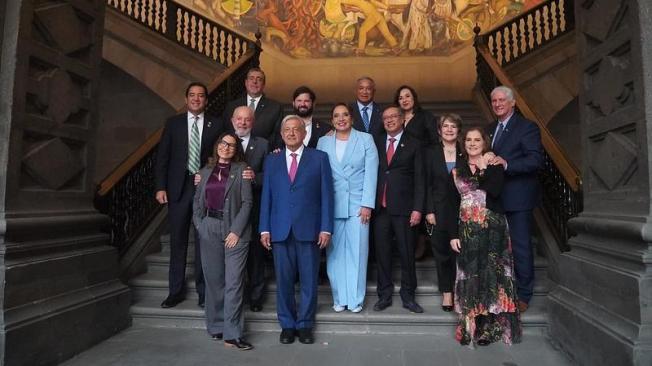
President Gustavo Petro along with other Latin American presidents in a meeting with the former president of Mexico Andres Manuel Lopez Obrador. Photo: Presidency
Petro will maintain the role of interlocutor
However, the Colombian government insists on the experience of the National Front. And although the Colombian president did not give details about how the bloc will proceed after the demarcation of Mexico, it is presumed that he will maintain the role of interlocutor both with the Nicolás Maduro regime and with opposition actors.
The pending call with Maduro, which was attempted at the beginning of September, went to the background because, according to THE TIME, President Petro wants to advance first in other talks before holding talks with his Venezuelan counterpart. However, it is not ruled out that it could be reactivated at any time.
On the international agenda that Luis Gilberto Murillo has this week, which includes visits to China and Qatar with the main purpose of strengthening ties of cooperation and investmentit is not ruled out that the issue of Venezuela will arise. Even the Chancellor would be interested in hearing Qatari experiences in conflict mediation – the Arab State has occupied a prominent place in the talks between Israel and Hamas.
Simultaneously with these procedures, The Colombian government has chosen to remain firm in demanding the publication of the electoral records. “We remain at one point, if there is no presentation of minutes there is no recognition,” Petro emphasized in an interview with CNN en Español.
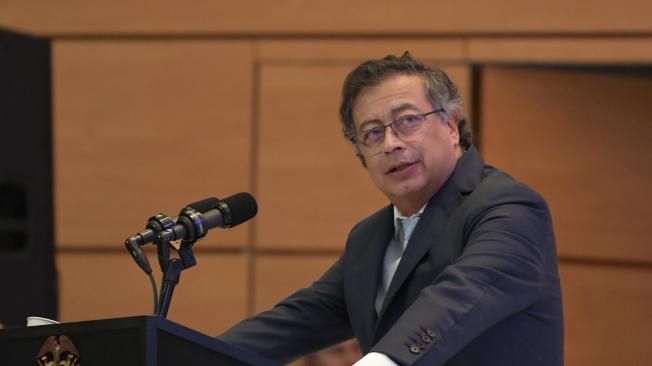
Gustavo Petro, president of Colombia Photo: Presidency
This position, however, has once again caused friction with the regime. “Neither you nor any Colombian institution have the right, much less the morality, to talk about Venezuela, it is not a matter that concerns you, it is definitely not your problem,” the chancellor told him. Yván Gil to his counterpart Luis Gilberto Murillo, who He reiterated President Petro’s statements in a political control debate in the Senate.
“The reality is that the Venezuelan regime has opted for an exercise of maintaining power through force and the repressive apparatus. He has raised the stakes so much that backing down is already difficult enough, backing down would cost him a lot. (to Maduro) within their own ranks and would generate a fracture within Chavismo“, maintains the researcher Ronal Rodríguez, spokesperson for the Venezuela Observatory of the Universidad del Rosario.
The researcher considers that President Petro and the Foreign Ministry are not considering this intention, which is why he sees a future for the cohabitation proposal as unlikely. On the other hand, he says, “giving three years to the ruling party would fracture the beliefs of the opposition base; therefore, This alternative is fundamentally impossible because both the opposition and the government could not justify a cohabitation government to their own bases and would break the support they have today.”, he concludes.
*The Grupo de Diarios América (GDA), to which El Nacional belongs, is a network of leading media outlets founded in 1991, which promotes democratic values, the independent press and freedom of expression in Latin America through quality journalism for our audiences.
Independent journalism needs the support of its readers to continue and ensure that the uncomfortable news they don’t want you to read remains within your reach. Today, with your support, we will continue working hard for censorship-free journalism!
